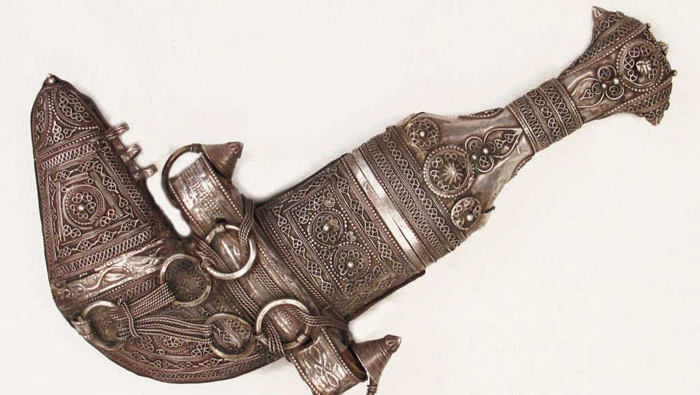
Muscat: The Omani standard of the Omani Khanjar (dagger) version 2007 is being updated.
Get your essential daily briefing delivered direct to your email inbox with our e-newsletter
Confirming this, the Ministry of Commerce and Industry, represented by the Directorate General for Standards and Metrology (DGSM), said that it is doing this in cooperation with the Public Authority for Craft Industries (PACI).
The DGSM explained that when the Omani Khanjar is made, the following requirements should be observed:
The Khanjar should be made in licenced premises and in accordance with the good practice of the making while maintaining the distinctive features of the Omani Khanjar. It should be in one of the types mentioned in the standard. No changes are allowed that affect the identity of Omani Khanjar on the known varieties. The standard of the silver used in making the Khanjar should match the Royal Decree No. (109/2000). Rhino horns should not be used in the Khanjar in accordance with the Ministerial decision No. (169/1994).
The DGSM added that the Khanjar for children and below 16 years youngsters should have un-sharp blade or without blade. The used wood should be sandalwood or similar, and that the blade should be made of rustproof steel and the used leather could be genuine or non-genuine (optional). The used cloth should be velvet and there should be a consistency between parts of the Khanjar and its size and weight.
The DGSM indicated the Khanjar prepared for marketing should contain the following data: silver/ gold standard, year of manufacturing, Made in the Sultanate of Oman, type of the Khanjar, name of the manufacturer, and any other data the manufacturer sees important.